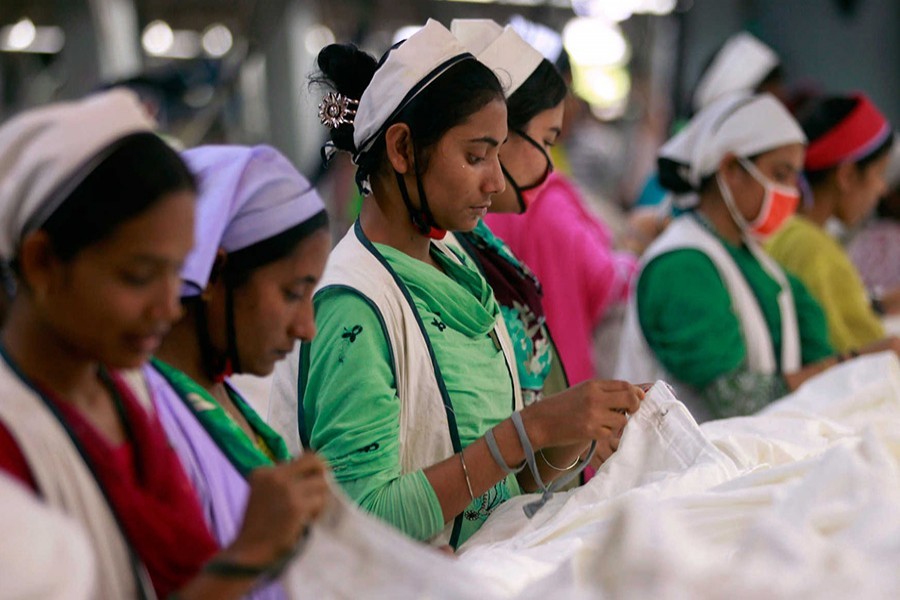The anomalies in issuing appointment letters and identity cards are still high in garment factories, especially in non-trade group member mills, according to government findings.
Inspectors at the state-run Department of Inspection for Factories and Establishment found roughly 83 per cent mills not affiliated with the industry associations issued appointment letters and identity cards with pictures to workers.
But the rates of such record were 87 per cent and 85 per cent for the Bangladesh Garment Manufacturers and Exporters Association.
More than 97 per cent members of the Bangladesh Knitwear Manufacturers and Exporters Association were found to issue both appointment letters and identity cards.
The revelations came from the department findings collected over the last year.
But the rate of irregularities is higher in factories not affiliated with either of the trade bodies than those of member mills, according to the findings.
Even so, the record of compliance is poorer in factories registered with the BGMEA than the members of the BKMEA.
In 2017, the department inspected a total of 1,771 units.
Of the total, some 1,181 are members of the BGMEA, some 475 are registered with the BKMEA and the rest are not affiliated with either of the trade bodies.
The department said about 4,795 garment factories are in operation across the country.
Nearly 61 per cent and 64 per cent of the non-member garment factories have participatory and safety committees respectively, the department's report showed.
The rate is 67 per cent and 68 per cent for the BGMEA members while 90 per cent and 92 per cent of BKMEA members have the committees respectively.
According to the law amended in 2013, any factory that employs 50 or more workers must form a safety committee and a participatory committee, which would work according to the rules.
Irrespective of member and non-member factories, nearly 97 per cent paid monthly wages regularly, the department found.
Some 88 per cent of the BGMEA members and 98 per cent of the BKMEA members provided maternity leave and benefit while the rate is 80 per cent in non-members, according to the findings.
Some 83 per cent, 93 per cent and 95 per cent non-members, BGMEA and BKMEA members found having insurance coverage for their workers respectively.
When contacted, the department's inspector general Shamsuzzaman Bhuiyan said, "We want to create a safety culture and we need support from both the workers and owners for this."
Though the department is yet to take any measures, especially for the non-association members, it will look into the matter, he added.
When asked, Faruque Hassan, vice-president of the BGMEA, said apparel makers had been pre-occupied with improving workplace safety in the last couple of years and less-prioritised other requirements.
But he said the association would now motivate its members to comply with the required standards such as the issuance of appointment letters and identity cards.
Without maintaining the minimum standards, none would be able to sustain business in the long run, he said, urging the government to get non-members registered so that any untoward incident could be averted.
"Many things made mandatory by the law are just found in documents. But in reality, most of them don't exist or practised," labour leader Sirajul Islam Rony said.
If the law of the land is implemented, workers' rights would be ensured and there would be no international pressure, he said.
Terming the department's such inspection primary screening, Khondaker Golam Moazzem of the Center for Policy Dialogue placed the importance on the second screening to have the qualitative picture of the real improvement.
"These are only findings of questions yes or not," he said.
The department should go for checking whether the participatory and safety committees were functional or not, he said, adding they should hold regular meetings to see how many workers had received maternity leave with benefits.
How many factories paid wages by the seventh of the month and the number that paid festival allowances and the amount, he noted.
He criticised the department for dropping the provision of trade unions from its report terming it 'surprising'.
He recommended that the department get workers' opinions for evaluating the information, which is otherwise collected mostly from the factory management.


